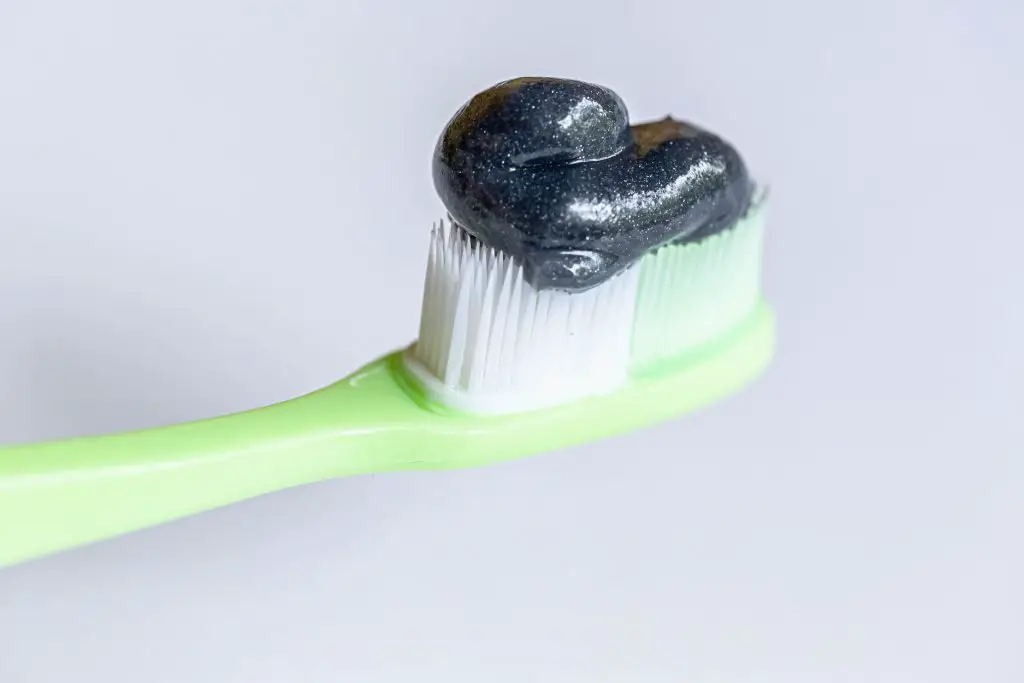You’ve probably seen many social media posts showing people using charcoal products for teeth whitening. The charcoal used in these products is called activated charcoal, and the posts will claim that they whiten your teeth better than regular products.
Activated charcoal is made by heating natural materials like coconut shells, wood, and sawdust at high temperatures. This process activates the charcoal, which essentially means it becomes porous.
You can either buy activated charcoal as a fine powder or charcoal toothpaste to clean your teeth. There are even charcoal toothbrushes and dental floss for people looking for complete oral hygiene.
With all the hype surrounding charcoal cleaning products, let’s explore if it does any good and if it is safe to use.
How Does Activated Charcoal Work?
Charcoal products claim to remove teeth stains and mineralize them. This is true, and aside from removing stains, charcoal can protect the teeth from growing microorganisms.
The abrasive nature of charcoal scrubs stains and plaque clean from your teeth. Dental care professionals recommend using charcoal alongside regular dental hygiene.
So if you’re wondering about the question, is charcoal good for your teeth? The answer is yes but ultimately, it won’t do as much good when used in the long term.
Furthermore, the data behind these products is inconclusive, stating that more data is required to know their effectiveness, according to the American Dental Association.
What Does Activated Charcoal Do to the Teeth?
When used for oral hygiene, activated charcoal has a lot of oral health benefits. Let’s break these benefits to know the answer to the question, is charcoal good for your teeth?
Removes Stains
Teeth get stained over time due to the consumption of certain foods and drinks. These include coffee, dark sodas, tea, red wine, and cigarette smoke. Certain chemicals present in these foods cling to the outer surface of the teeth.
Slowly, these chemicals accumulate on the surface of your teeth and develop stains. The aesthetic appearance of the teeth is drastically affected by these stains.
Activated charcoal allows food particles and other toxins to stick to its surface. As a result, the stains adhere to the charcoal, leaving the teeth white and shiny. However, deep stains cannot be removed by brushing with charcoal.
Using charcoal is not like any other teeth whitening chemical. However, it does clean the teeth surface by scraping off the accumulated materials.
Prevents Bacterial Growth
There are a lot of microorganisms that stick to plaque and food particles present in the mouth. Activated charcoal can absorb these harmful bacteria and prevent their spread.
Controlling bacterial growth improves oral hygiene and prevents the risk of diseases.
Controls Bad Breath
Bad breath is produced by certain bacteria growing in the oral cavity. In addition, the accumulation of stains and plaque on the teeth promotes bacterial growth.
With the use of activated charcoal, bacterial growth slows down. The decrease in bacterial growth ultimately resolves the issue of bad breath.
Remineralize the Teeth
Our oral cavity has a Ph value of around 6.3. Below this threshold, the Ph becomes acidic. This acidic environment easily damages the teeth. Demineralization can occur if the Ph value falls below 5.5.
To keep the moth healthy and free from diseases, a neutral Ph value should be maintained. Activated charcoal readily absorbs acidic chemicals and toxins, increasing the Ph value in the mouth.
Surprisingly, maintaining a Ph value above seven can repair the teeth. Remineralization of teeth occurs when the Ph is seven and above. Therefore, using charcoal improves pH, making the gums and teeth healthy.
Polishes
Activated charcoal particles are abrasive. These particles scrub and polish the teeth. Plaque and stain build-up on the teeth can be reduced with the use of charcoal.
Prevents Staining
With moderate use, activated charcoal prevents further staining and plaque build-up on the teeth. Activated charcoal is considered safe to use, but it should be understood that too much use can cause damage.
This damage occurs due to the abrasiveness of charcoal particles. Therefore, when choosing a charcoal product, always go for an RDA value below 250.
How long Does it Take For Activated Charcoal To Work?

The activated charcoal results depend on the person’s eating habits and oral hygiene. In addition, the amount of plaque and stain build-up are also some factors to consider.
Typically, it takes around a week to see a noticeable difference. However, after several uses, the charcoal should be able to reduce the stains and plaque on the tooth surface.
Is Charcoal Safe to Use on Sensitive Teeth?
Finding a charcoal whitening product that isn’t too abrasive can do the trick for people with sensitive teeth. According to ISO standards, a charcoal product below an RDA value of 250 is safe for daily use.
Can Activated Charcoal Damage Teeth?
Charcoal products come in a variety of grades. Some products have fine granules whereas others have larger ones. You should always choose charcoal products with fine granules as they are not too abrasive.
Is Activated Charcoal Good for Your Teeth?
Despite the abrasive nature of activated charcoal, its ability to whiten the teeth cannot be disregarded. Charcoal does clean the teeth, but it does not protect them from tooth decay.
Finding a charcoal toothpaste infused with fluoride will not only clean teeth but also prevent tooth decay when used long-term.
Activated charcoal is porous and abrasive, making it a sensible choice to lift off plaque and remove stains from the teeth. Although scientific evidence is limited, many people still claim activated charcoal does clean the teeth.
Charcoal has been gaining popularity when it comes to dental health, and this is why it’s essential for you to understand how effective it is. It does clean the teeth and remove tartar from the surface. Therefore, charcoal products that are too abrasive should always be used scarcely.
However, if you have a tooth or gum disease, charcoal products are not advisable. Consult your dentist and never miss a dental examination as several diseases cause plaque build-up and should be addressed professionally.

